The Universe - Season 6
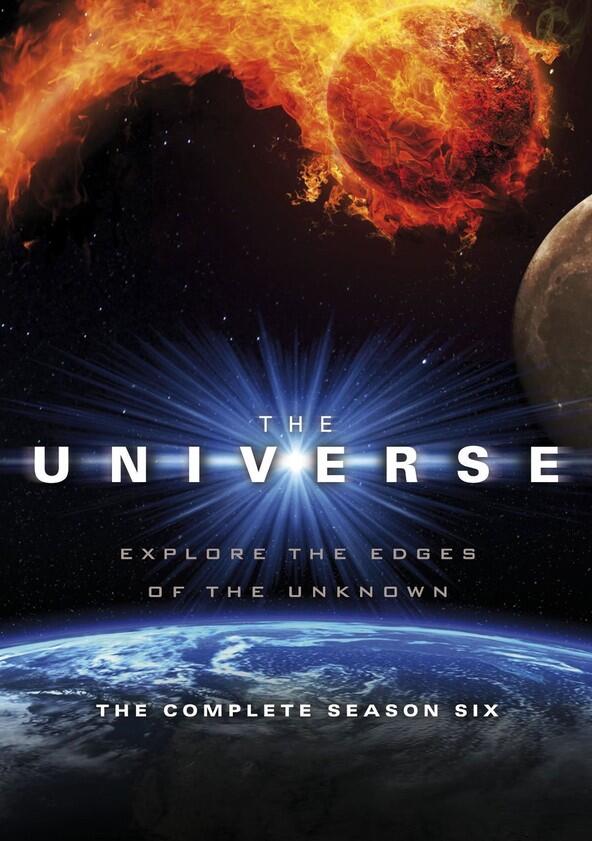
Season 6
Episodes
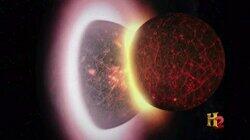
Catastrophes That Changed the Planets
The planets of our solar system have experienced epic catastrophes throughout their long history, both raining down from outside and bubbling up from within. We'll voyage back in time to investigate the violent events that profoundly shaped the planets, including earth itself. We'll witness stunning revelations about what transformed Mars into a barren, hostile desert...The disaster that changed Venus from temperate to hellish...The impact that blew away Mercury's mantle, turning it into a planetary core...A colossal disturbance that rearranged the orbits of the gas giants...Titanic impacts on Jupiter...And how a lost moon may finally explain Saturn's rings.
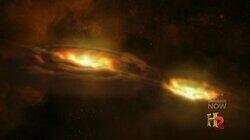
Nemesis: The Sun's Evil Twin
Could there be a monstrous, undiscovered star orbiting our own Sun? Could it be scattering killer comets throughout our Solar System like clockwork every 26 million years? New scientific surveys are probing the edges of our Solar System--a realm populated by giant worlds and mysterious planetoid--hunting for Nemesis, the Sun's purported evil twin. We may be on the verge of discovering this ultimate death star, suspected of causing every mass extinction in Earth's history. We employ everyday experiences to explain what Nemesis is and why it's been so hard to find. Experts start a wildfire on a dry California hillside, race a NASCAR around an oval track, and juggle fire, all in the effort to present how Nemesis works, and why life on Earth may depend on its discovery.
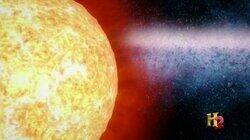
How the Solar System Was Made
At 4.6 billion years old, the Solar System is our solid, secure home in the Universe. But how did it come to be? In this episode we trace the system's birth from a thin cloud of dust and gas. Shocked by a nearby supernova, the pull of gravity and natural rotation spun it into a flat disc from which the Sun and planets coalesced. It all happened in the space of 700 million years, during which the planets jockeyed for position, dodging the brutal bombardment of deadly asteroids and setting into the neat, stable system that we now realize might be a rarity in the universe.
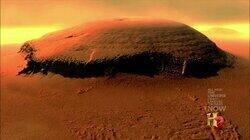
Crash Landing on Mars
What might happen if the first manned mission to Mars crashes hundreds of miles from the rocket that would take them back home? Could they survive the crash, and travel across the brutal Martian surface to their home ship? We'll show what the astronauts would have to do to survive dust storms and space radiation, while extracting vital resources like water from the Martian soil itself. It's a dramatic vision of the very near future, where survival can depend on pre-industrial technology and human ingenuity.
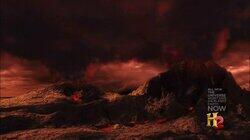
Worst Days on Planet Earth
Earth may seem like the most hospitable planet in the solar system. But look again. Startling new discoveries reveal the blue planet has been plagued by more chaos and destruction than scientists once imagined. Stand on the Earth billions of years ago as a primitive planet slams into it. Shiver as our entire globe is frozen over like a gigantic snowball. Feel the heat as mammoth volcanoes scorch the landscape and darken the sky. From a cosmic gamma ray burst frying away the ozone layer to an Everest-size asteroid slamming into the ocean, we'll reveal new information about how these unparalleled events drove life to the brink of total extinction. Out of this continuous devastation, how has our planet--and life--got to where it is today? Are the worst days behind us--or lurking in the distant future?
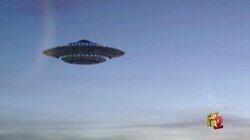
UFO: The Real Deal
Many argue that flying saucers and other extra-terrestrial space ships continuously visit the earth. If that were true, what kinds of technologies would such alien spacecraft require? And do eyewitness reports of UFO sightings jibe with modern theories of how interstellar travel might be possible? Authors, astronomers and theoretical physicists weigh in with the blueprints for inertia-canceling devices, nuclear-powered craft, antimatter propulsion systems and even warp drives. Based on Einstein's theories and countless scientific studies, we'll find out how these visitors might bridge the vast distances between the stars. And if they could survive such hazardous journeys, are they flesh and blood or intelligent machines?

God and the Universe
Since the dawn of civilization, humans have wondered who or what created the universe. Religion offers a spiritual answer, but do the latest discoveries in physics show evidence of a transcendent intelligence, or simply that the laws of physics by themselves could have led to the universe in which we live? This episode embarks on a mind-bending scientific search for God, asking physicists and theologians if the seemingly miraculous way the universe has been calibrated to support life is evidence of a creator...whether string theory will eventually be able to rule out the existence of God...why Stephen Hawking says the universe could have been created spontaneously...and how an advanced civilization in another universe could have conceivably created our own.
Recently Updated Shows

Vienna Blood
Max Liebermann is a brilliant young English student of famed psychoanalyst Sigmund Freud. When Max comes into contact with Oskar Rheinhardt, a Detective Inspector struggling with a strange case, he agrees to help him investigate a series of unusual and disturbing murders. Max's extraordinary skills of perception and forensics, and his deep understanding of human behavior and deviance, lead them to solving some of Vienna's most mysterious and deadly cases.

Wild Cards
Wild Cards follows the unlikely duo of a gruff, sardonic cop and a spirited, clever con woman. Ellis, a demoted detective, has unfortunately spent the last year on the maritime unit, while Max has been living a transient life elaborately scamming everyone she meets. But when Max gets arrested and ends up helping Ellis solve a local crime, the two are offered the opportunity to redeem themselves, with Ellis going back to detective and Max staying out of jail. The catch? They have to work together, with each using their unique skills to solve crimes. For Ellis, that means hard-boiled shoe leather police work; for Max, it means accents, schemes and generally befriending everyone in sight, while driving Ellis absolutely nuts. Against the backdrop of beautiful Vancouver — with all its unique, charming, and even contradictory neighbourhoods and subcultures — the two will have to learn what it means to trust another person and maybe actually become partners.

The Handmaid's Tale
The Handmaid's Tale is the story of life in the dystopia of Gilead, a totalitarian society in what was formerly the United States. Facing environmental disasters and a plunging birthrate, Gilead is ruled by a twisted fundamentalism in its militarized ‘return to traditional values'. As one of the few remaining fertile women, Offred is a Handmaid in the Commander's household, one of the caste of women forced into sexual servitude as a last desperate attempt to repopulate the world. In this terrifying society, Offred must navigate between Commanders, their cruel Wives, domestic Marthas, and her fellow Handmaids – where anyone could be a spy for Gilead – all with one goal: to survive and find the daughter that was taken from her.
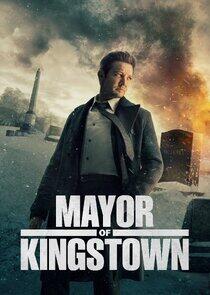
Mayor of Kingstown
Mayor of Kingstown is set in a small Michigan town where the only industry remaining are federal, state, and private prisons, the story follows the McLusky family, the power brokers between the police, criminals, inmates, prison guards and politicians, in a city completely dependent on prisons and the prisoners they contain. It is a stark and brutal look at the business of incarceration.
